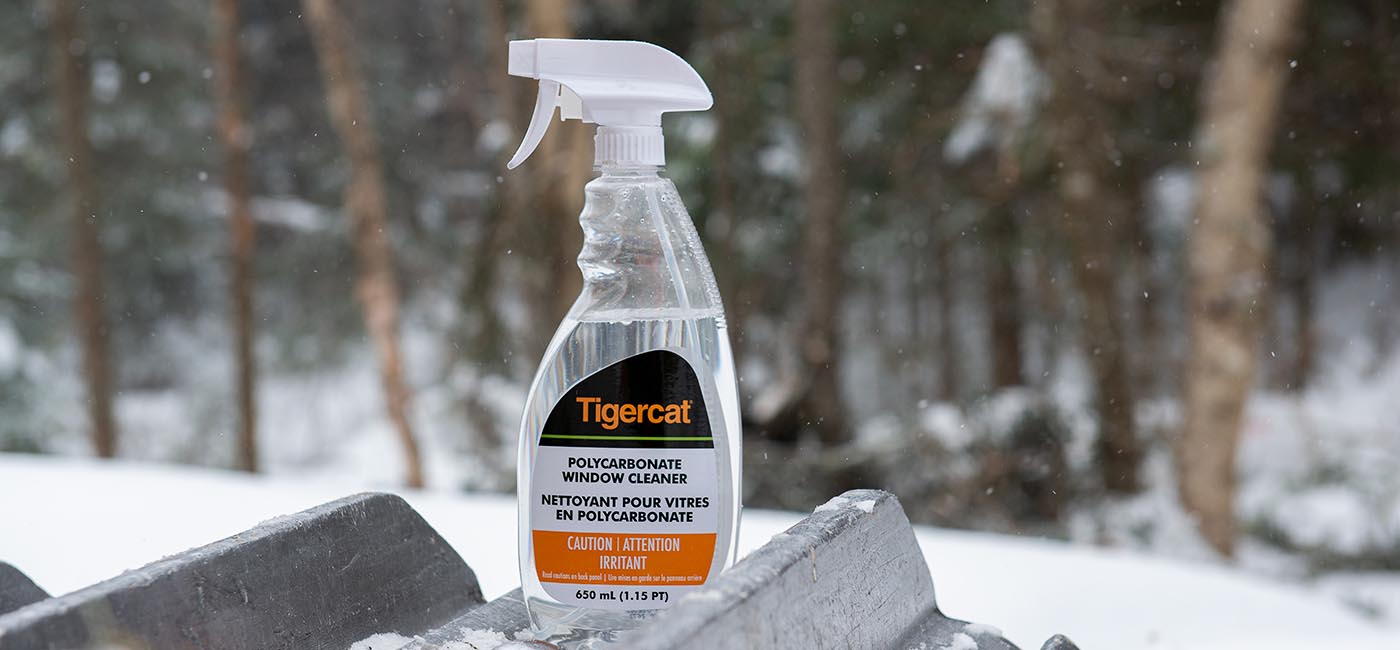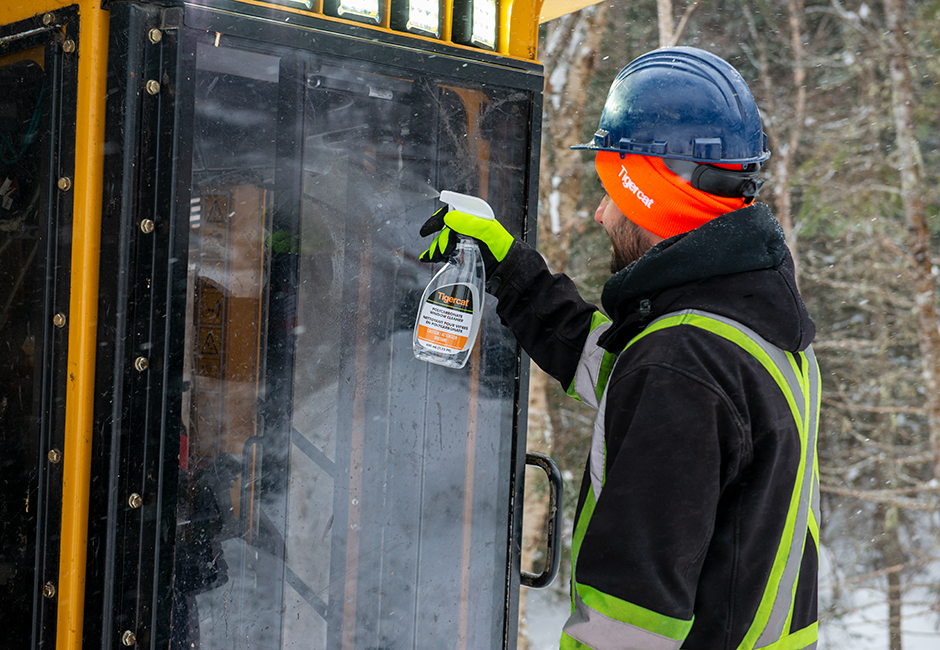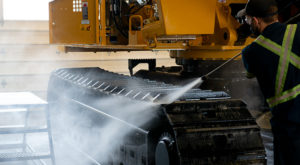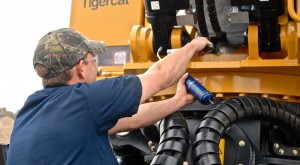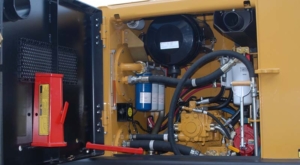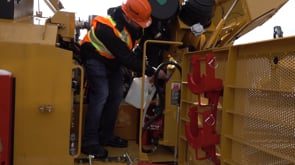Cleaning Polycarbonate Windows
Polycarbonate is literally the operator’s window to the world. Proper cleaning products and protocols applied to Tigercat cab windows will ensure safety and protection, clear visibility, and long-term performance.
The thickness of the material used in a particular cab window is determined by a number of factors including the size of the window opening, the proximity to a safety hazard, the type and severity of the hazard, and the requirements of applicable safety standards.
Polycarbonate windows used in Tigercat cabins range in thickness from 9-32 mm (0.375-1.25 in). Polycarbonate material is used to resist impact from large branches, falling tree tops, and to absorb high levels of energy. Forestry harvesting applications can produce hazards from high velocity thrown objects such as wood chips, saw teeth or broken saw chain fragments.
Polycarbonate windows provide a much tougher solution than glass but the thermoplastic material is sensitive to some common chemicals. The surfaces of Tigercat polycarbonate cab windows are specially treated with a hard coating to provide enhanced resistance to abrasion and ultra-violet (UV) radiation. However, even with this coating, it is relatively easy to scratch the surface when compared to glass which is incredibly resistant to a long list of cleaning chemicals. To address this issue, Tigercat-branded polycarbonate window cleaner is now available to clean cab windows without the risk of chemical damage to the polycarbonate.
Power wash the exterior windows with water when ambient temperatures are above freezing. Do not steam clean. Water can be heated up to 65°C (150°F) and pressurized to a maximum of 100 bar (1,450 psi). If desired, a very mild soap additive can be added from the approved list. This will remove most of the abrasive dirt, tree sap, pollens, chain oil, road salt, and other common substances that often accumulate on forestry machine cabin windows.
Finish the cleaning operation with Tigercat Polycarbonate Window Cleaner and a clean, soft cloth, preferably micro fibre. A soft cloth will deliver better results than a paper towel due to chemicals commonly added to paper towel products.
Tigercat Polycarbonate Window Cleaner begins to freeze below -10°C (14°F). If the ambient temperature hits this mark, spray the window with a generous amount of diluted isopropyl alcohol (IPA) to loosen abrasive or other material on the window. (Do not use automotive windshield washer fluids because they contain methyl alcohol which can damage polycarbonate windows.) Continue cleaning the window with isopropyl alcohol diluted with water. Dry the window with a clean soft cloth.
Clean with generous amounts of Tigercat Polycarbonate Window Cleaner and a clean soft micro fibre cloth. Carefully dry with a different clean soft cloth. Even though the windows have a scratch resistant coating, the surface is not as hard as glass and can scratch easily if sand or other abrasive particles are present in the cloth.
Using excessively hot water, aggressive cleaning, or the wrong chemical cleaners can result in many small cracks, often referred to as crazing. Crazing can ultimately result in a loss of physical strength and increase the potential for fractures. After cleaning, always check that the windows are not deeply scratched and that rubber seals and steel retaining strips are properly secured.
- Never use abrasive or alkaline cleaners containing ammonia
- Never scrape with squeegees, razor blades or other sharp instruments
- To avoid stains or streaks, don’t clean polycarbonate in the hot sun or at elevated temperatures
- Never use aromatic or halogenated solvents like toluene, benzene, gasoline, acetone or carbon tetrachloride
- Refer to your Tigercat Operator’s Manual for a list of chemicals and cleaning products that should never come in contact with polycarbonate windows
Approved cleaning products for polycarbonate windows
- Tigercat Polycarbonate Window Cleaner
- Isopropyl Alcohol (IPA)
- Joy dishwashing liquid
- Palmolive dishwashing liquid
- Plaskolite plastic cleaner
- Spartan Concentrated Glass & Hard Surface Cleaner 3
- Windex (Ammonia-free)
Approved spot removal products
(must be followed by immediate cleaning then water rinse and wipe dry afterward)
- Butyl Cellosolve
- Kerosene
- VM&P Naptha

